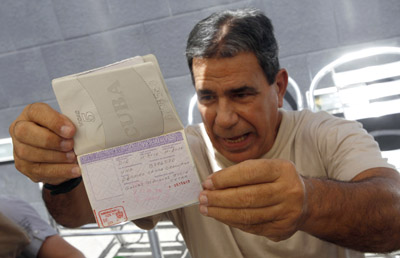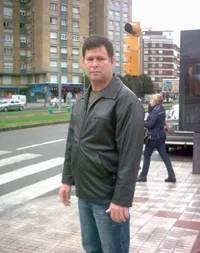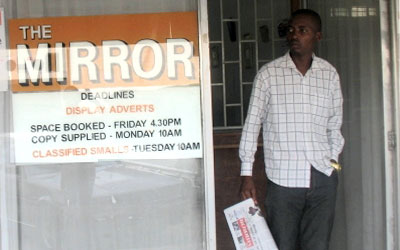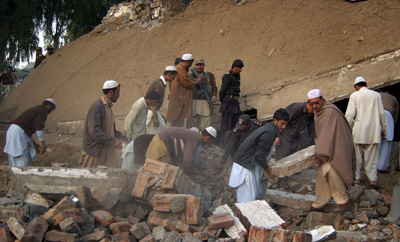
A Cuban journalist in exile: Unkept promises
The clouds of exile are twice as bitter. Being forced from your birthplace and into legal limbo in the land of your grandparents where you’re met by complete official abandonment only deepens the wounds. My gloominess has nothing to do with the affection and solidarity shown by the Spanish people, especially the citizens of Madrid.…
EU should press Uzbekistan on news media crisis
Dear President Barroso: We’re writing in advance of your January 24 meeting in Brussels with Uzbek President Islam Karimov to urge you to raise Uzbekistan’s grave press freedom conditions and to make clear to Karimov that any improvement of the country’s relationship with Europe is dependent on him taking steps to fix the press freedom crisis. The European Union made clear it is committed to human rights in Central Asia in its 2009 plan, “The European Union and Central Asia: The New Partnership in Action.”
Saudi online media regulations alarmingly restrictive
Dear Minister al-Khuja: The Committee to Protect Journalists is deeply concerned about new regulations for online media you issued on January 1. The rules contain several provisions that can be used to restrict coverage. The provisions are vaguely worded, contain numerous loopholes, and grant the Ministry of Culture and Information blanket powers without providing online media protection against abuse. Most alarmingly, the new regulations would also subject online media to the kingdom’s already existing highly repressive press law.

The struggle continues for power, and media, in Ivory Coast
In Ivory Coast, the tense post-election dispute between incumbent President Laurent Gbagbo and rival and self-proclaimed president-elect Alassane Ouattara is a power struggle for control of national institutions–including the sole state media outlet, Radiodiffusion Télévision Ivoirienne (RTI).
Tunisia must end censorship on coverage of unrest
Dear President Ben Ali: The Committee to Protect Journalists is disturbed by your government’s attempt to censor coverage of recent protests against unemployment and corruption in Tunisia. We are specifically alarmed by the confiscation of two opposition weeklies, the government’s denunciation of Al-Jazeera, the systematic obstruction of reporting and broadcasting, as well as the blocking of news websites that are covering the protests. We call on your government to bring to an immediate end to its efforts to curtail independent reporting and to reverse course on the restrictions in place since mid-December.

Unexpected departure: From jail to exile
It was about 4 in the afternoon on July 8 when the official assigned to me at Toledo Prison, where I’d been locked up for nearly five years, came running to get me. He was in such a hurry that that he tripped and almost fell to the ground. “Saludes, we’re going upstairs,” he said,…

CPJ condemns two Venezuelan media laws
New York, December 21, 2010–President Hugo Chávez Frías must veto two laws regulating the Internet and telecommunications that could promote further censorship and seriously limit freedom of expression in Venezuela, the Committee to Protect Journalists said today. Both provisions were passed on Monday by the National Assembly.
Indonesian editor dead under suspicious circumstances
New York, December 17, 2010–The Committee to Protect Journalists joins with Indonesian journalist groups in calling for a full and vigorous investigation into the death of an editor on Kisar, one of the eastern Maluku Islands. Alfrets Mirulewan, chief editor of the Pelangi Weekly, was found with bruises on much of his body at 3…

